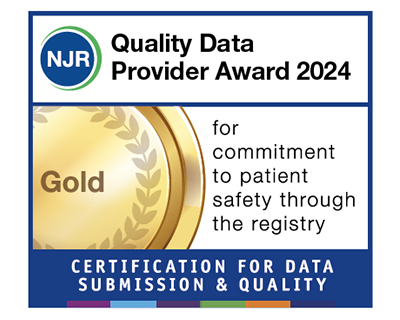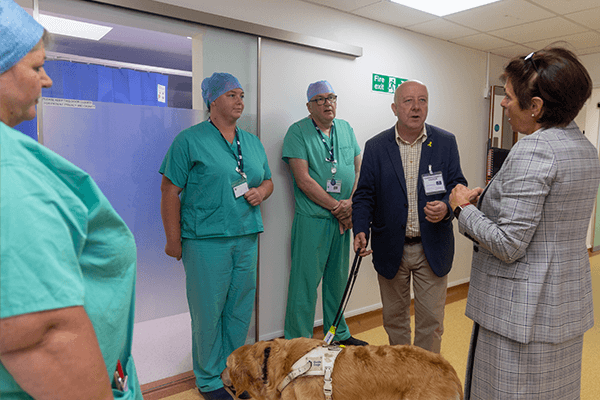Post Operation
Daycase
As a daycase patient, where you go immediately after your procedure will depend on the type of anaesthetic you have received. For example if you have a general anaesthetic or sedation, you will need closer monitoring for a while. You may also feel drowsy, so may need to lie down for a short time until you have recovered from the effects of your anaesthetic.
If you have had a local anaesthetic only, you won’t need as much monitoring, so will be shown to a ‘Discharge area’ where you will be able to sit for a while until you are seen by a nurse and advised you can go home. Again, dependent on your treatment, your doctor or a physiotherapist may wish to see you before you leave the hospital. We will let you know if this is the case. If at any time you feel uncomfortable, in pain or feel sick, then please let the nurse know. We will be able to help you and need to ensure that you are feeling comfortable and well enough to go home.
Inpatient
As an inpatient you will be taken to your private accommodation after the operation where you will be able to relax. If you have had a general anaesthetic you may feel drowsy at first. When you are fully awake (and depending on the type of surgery) you may be able to have a drink and perhaps something to eat. The nurse will continue to monitor your pulse and blood pressure regularly as appropriate. We advise that you do not get out of bed unaided immediately following your surgery, until informed that you may do so by your nurse.
You will be advised of an approximate time that you will be ready to leave the hospital. This will allow you to make arrangements for a friend or family member to collect, and accompany you home. If you need to take any medication following your departure, this will be given to you when you leave. There may be a charge for the medication if your medical insurance does not cover it.
You will be ready to go home when:
- All monitoring results are stable (such as blood pressure or pulse)
- You have no (or minimal) discomfort
- You have no nausea
- Any dressings (if you have one) are clean, dry and secure
- You are able to mobilise safely (especially important if you have had a foot or leg procedure)
Before you leave hospital following your procedure, please check that you have the following:
- Pain relief tablets and/or other medication you may need to take
- Any follow up appointments you require (for example, with your surgeon, physiotherapist or nurse)
- A ‘post discharge advice’ leaflet which contains advice on how to look after yourself at home following your procedure
- A copy of the letter which is sent to your GP or Practice/District Nurse detailing your treatment
- Medical or ‘fit’ certificate (if required)
Follow-up Care
If you need to see your consultant again following your discharge, an outpatient appointment will be made before you leave or you will be notified of your appointment as soon as possible after your discharge.
If you are concerned about anything after your treatment, then please contact the hospital.
Returning Equipment
Patients are often discharged from Mount Stuart Hospital with equipment/aids to daily living such as walking frames, crutches, toilet frames and seats to help them to maintain their independence at home. This equipment belongs to the patients on discharge and patients can choose to keep these for use in the future.
We are unable to maintain and decontaminate used equipment here at Mount Stuart Hospital and ask patients not to return equipment to us here.
Items such as walking aids and toileting aids can be taken to local collection and recycling points at one of 45 Devon Community Equipment Recycling Centres.
When equipment is returned, the NHS & Devon County Council save money by reusing the equipment, wherever practically and economically possible. Any equipment that can’t be reused because it is too old or worn, is offered where appropriate to charities, or recycled for its metals and plastics, with no items going to landfill.


